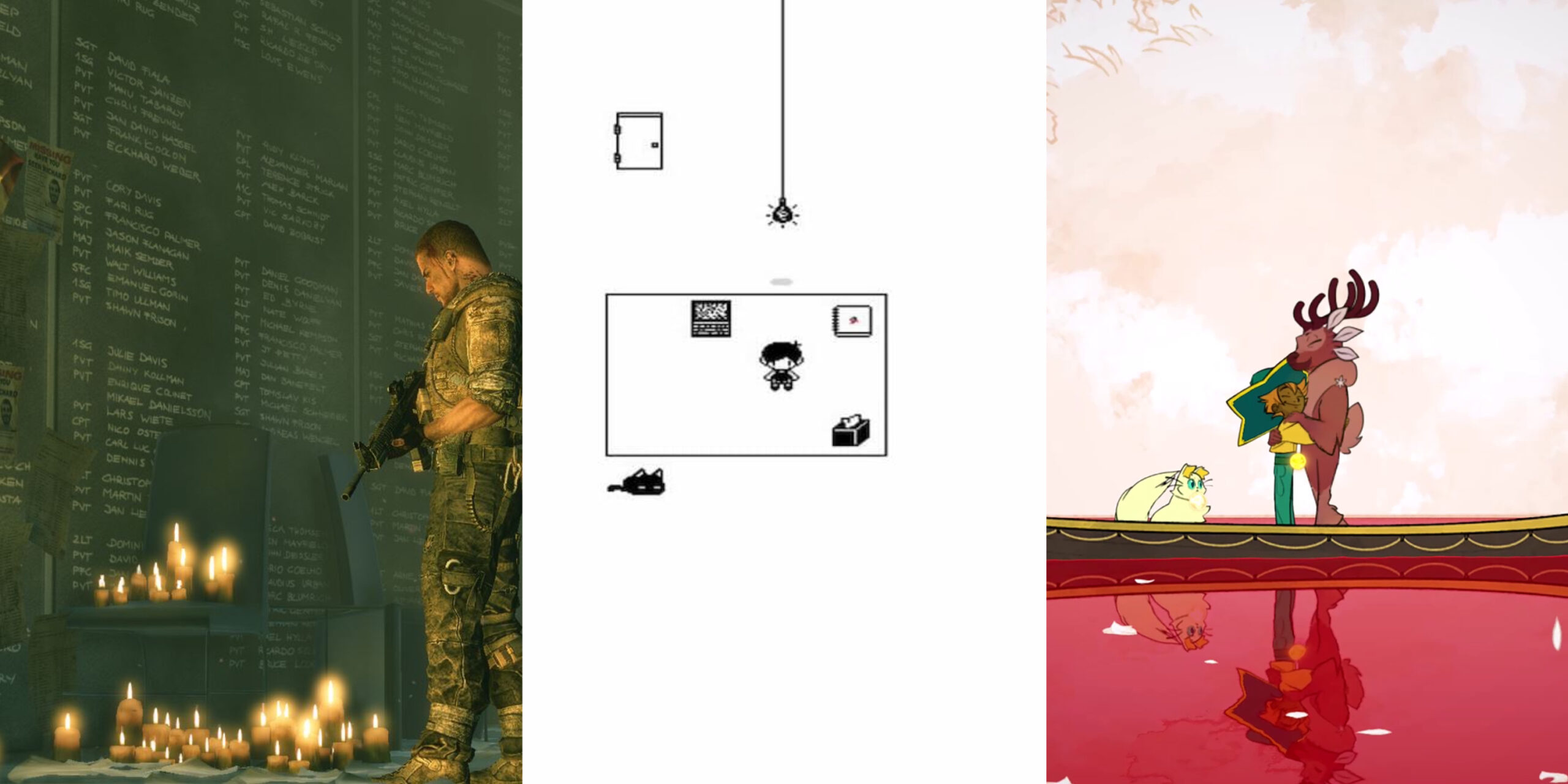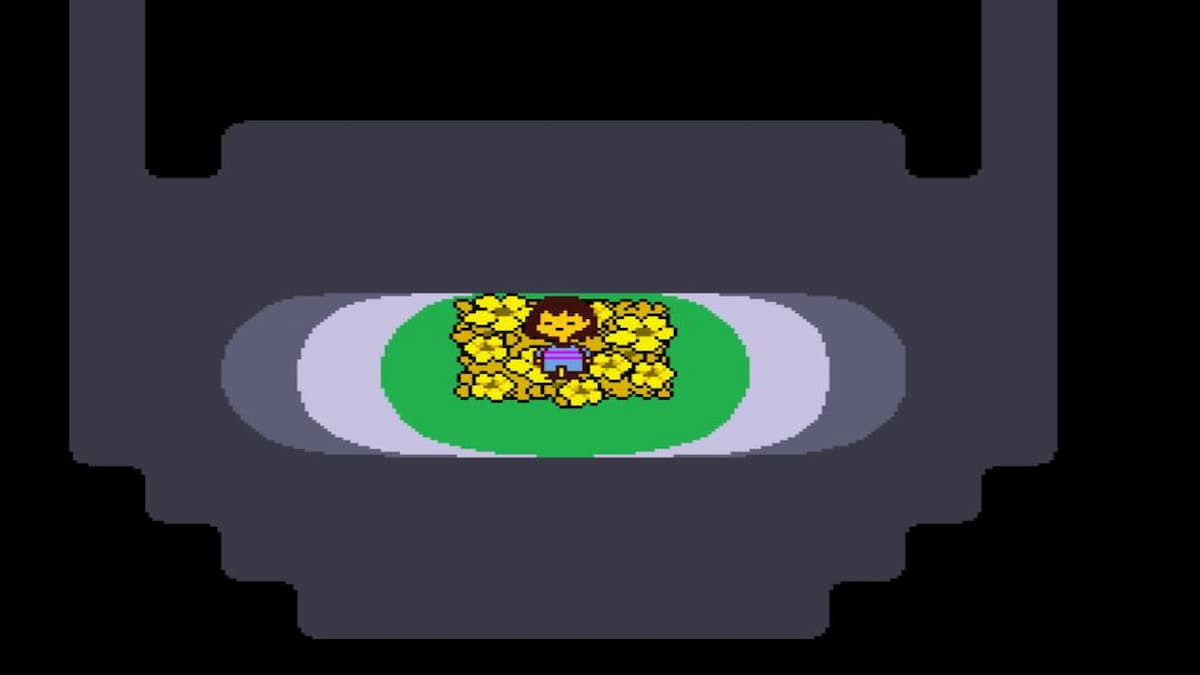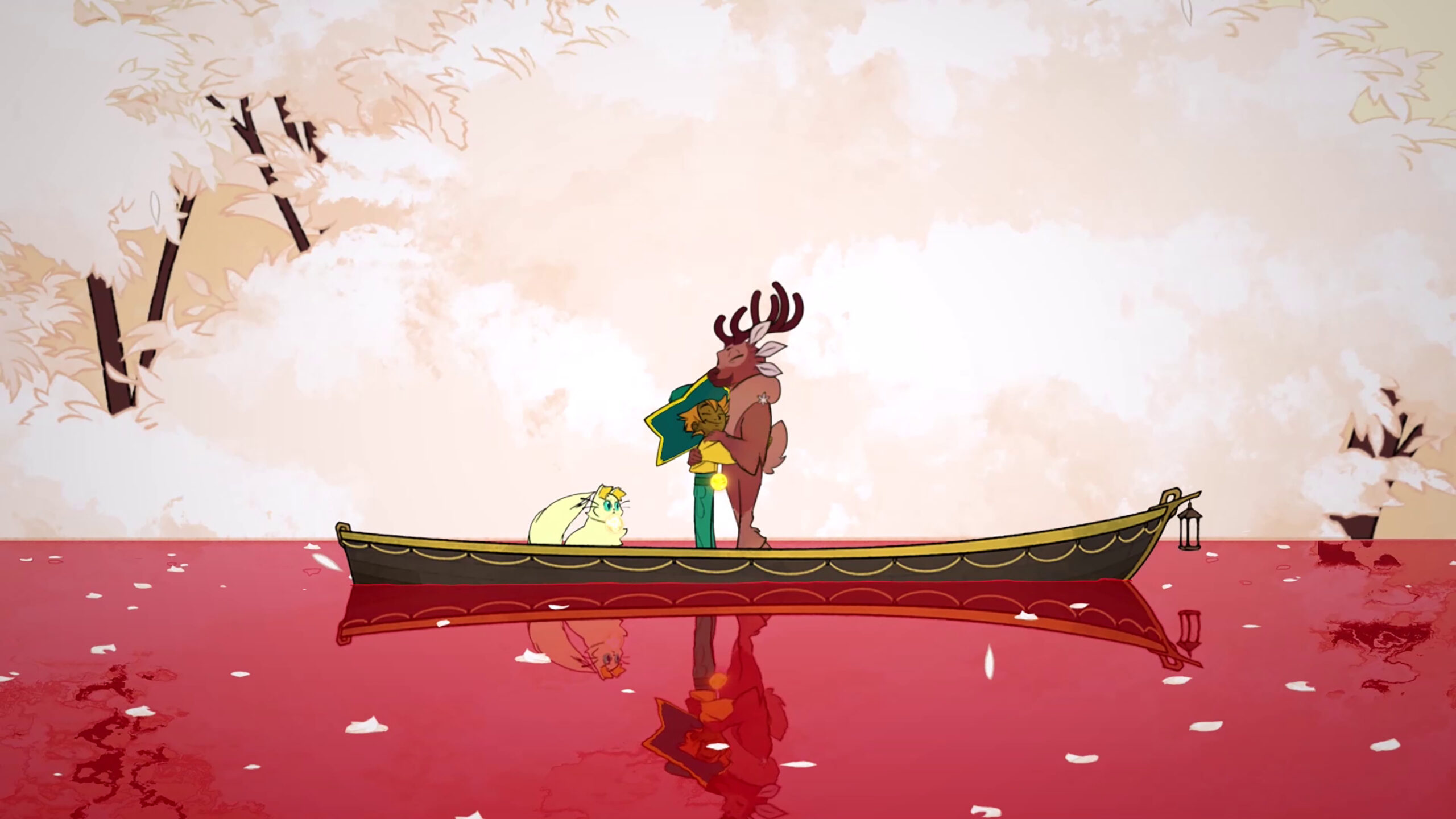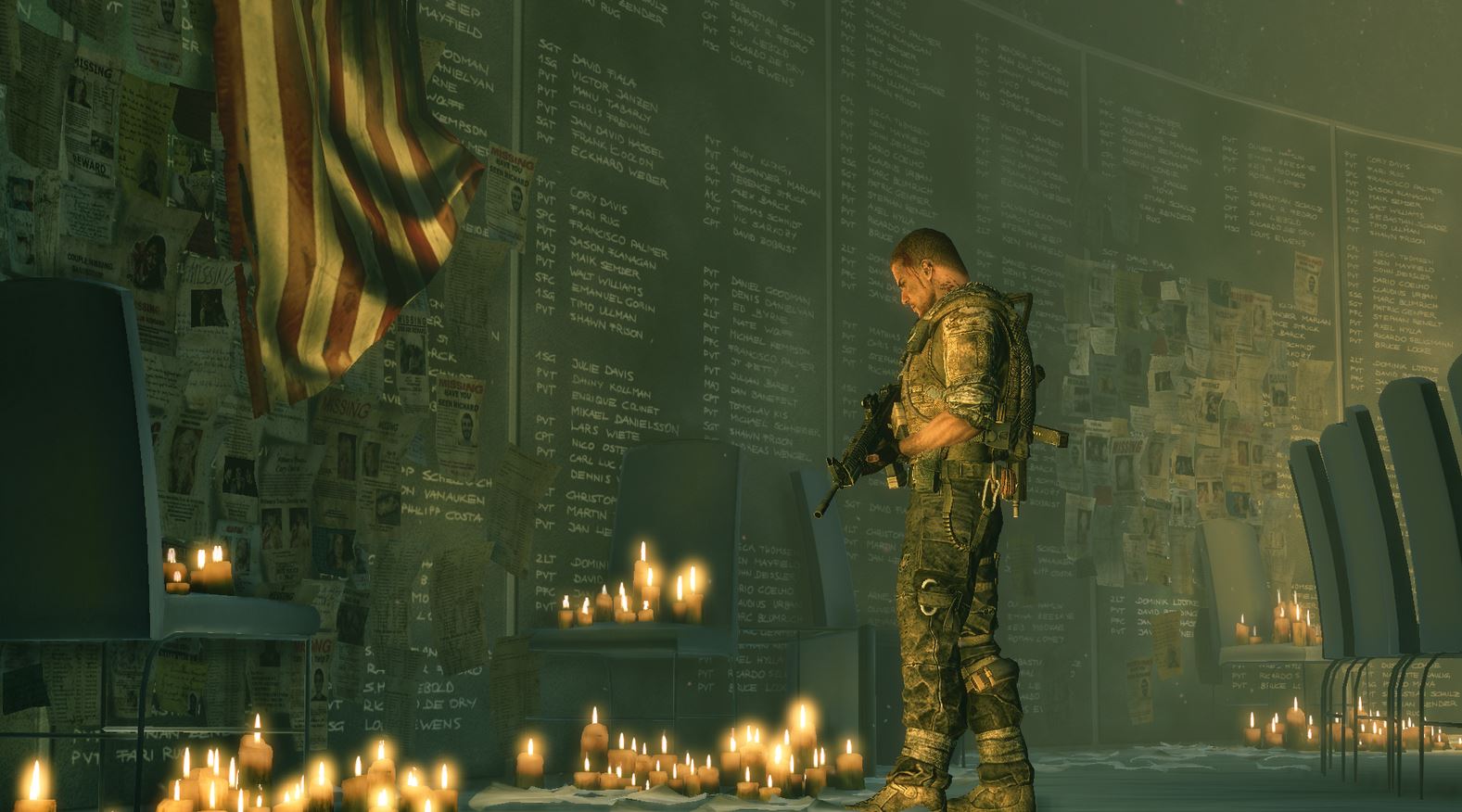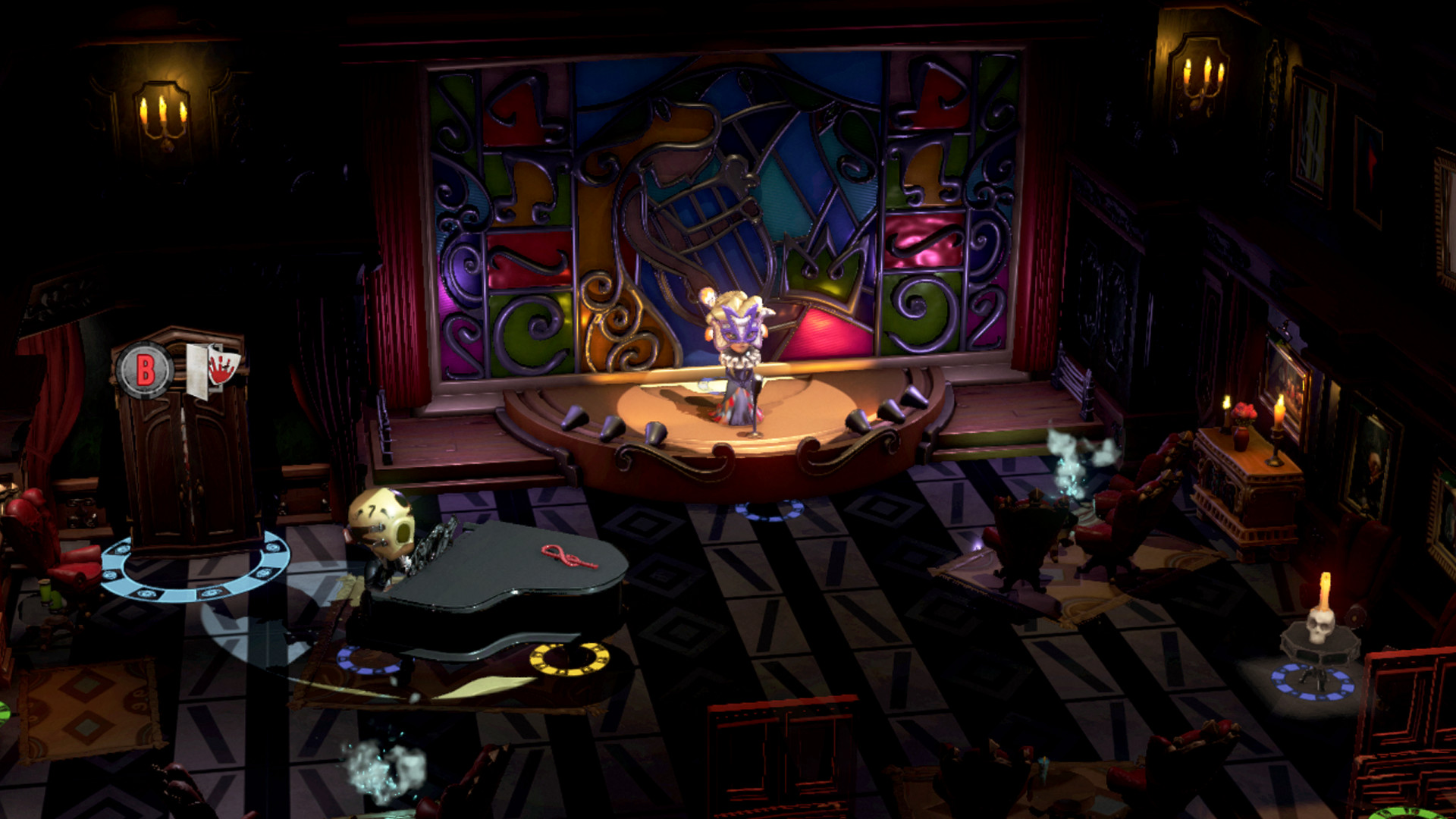I love to play video games not just because they’re fun, but because it’s a fascinating medium for storytelling. Adding a player’s volition into the procession of a narrative, even in a small way, can dramatically change the impact of a game’s story in ways that you may not get from a book or a movie. The ultimate goal of a good story is to elicit feelings in you, and just like any other art form, games can do this with aplomb. I know this because I have played multiple games in my life that, after finishing them, have left me in… various emotional states, let’s say.
It’s not that hard to make a game that has you saying “yep, that was fun” after finishing it. It is very hard to make a game with an emotional impact so powerful that all you can do afterward is stare blankly at the ceiling for an hour in contemplative silence. To crib a few words from a certain duck, a great story, a really great story, should always leave you different than when it found you.
Undertale
A good story lives and dies by its characters, and Undertale’s characters live and die by how much you like them. As it so happened, I absolutely loved all of the characters in Undertale, from their weird quirks to their dumb jokes to their many hopes and dreams. In this very particular setting, where your agency as a player is debatably at its utmost, this game made me care so, so much about a bunch of silly monster people that I almost couldn’t bear to let them go.
Let me put this in perspective: in the many years since Undertale first released, I have only played through and got the True Pacifist ending once. Not because I didn’t love it, but because, as a certain character tells you if you try to start the game over, everyone already got their happy ending. I loved these characters so much, that I could not, in good conscience, rob them of that. So I uninstalled it and never touched it again to keep them safe and ensure that the very notion of a Genocide run couldn’t get within spitting distance of them.
Spiritfarer
Death is, obviously, one of the most universally terrifying concepts in existence. It’s the ultimate inevitability; someday, somehow, we will all meet our ends, and in all likelihood, they won’t be the ends we were hoping for. Naturally, in most games, death is something to be feared, to be avoided. In Spiritfarer, though, death is a little less intimidating. Not because it doesn’t still happen, but because of the way it’s framed.
In Spiritfarer, your job is to ferry the souls of the recently departed around the afterlife, help them come to terms with whatever unfinished business they may have, and ultimately guide them to… whatever it is that comes after death. You know from the very start that every one of your passengers, all wonderful characters in their own right, will ultimately leave you, probably just when you’re getting attached to them. Every time, it’s heart-wrenching for sure, but it makes the time you had with them all the more memorable. Death isn’t just the end of all things, after all. It’s a justification to celebrate life and its many joys.
Omori
People like to joke about the overabundance of indie RPG Maker games about personal issues, and there is a kernel of truth to that notion. Undertale did bring a lot of faux-philosophical games out of the woodwork trying to capitalize on the same emotional niche. Omori, however, didn’t feel like one of those games. Omori had its own story to tell. Its own painful, traumatic story.
I think people are more tuned into the concept of trauma nowadays, how an incident in our formative years, big or small, can have a profound impact on us later in life. Omori is a story of the logical extreme when trauma turns to guilt and causes a person to completely shut the world out just to maintain some semblance of safety and sanity. It’s a story that teases you with a dark twist, only to hide a bigger, darker twist right behind it. Remember that hour of contemplative silence staring at the ceiling I mentioned? Yeah, Omori was the game that did that to me.
Spec Ops: The Line
2012 was part of an era of gaming I like to call “The Brown Years.” That was when games like the original Call of Duty: Black Ops were at their peak, and everything was a gritty military shooter set in a desert or something. It was a bit of a grating period to be gaming, but the overabundance of war shooters did give rise to an interesting thought experiment in the form of Spec Ops: The Line.
Spec Ops seems like your bog standard brown military shooter at first, but unlike many of those games, Spec Ops gives us a poignant reminder that war, as they say, is Hell. There is a singular moment not too far into the game’s story that has been permanently seared into the memories of everyone who played it, a dark spot of genuine, unsettling cruelty that makes you question what your protagonists are even doing here. The game does not hesitate to remind you that there are no “heroes” or “winners” in armed conflict. There’s just the side that lost less.
The Sexy Brutale
This one may seem like a curveball for most of you, which is frankly criminal because The Sexy Brutale is seriously underrated. It’s definitely one of those games that not a lot of people played (possibly due to its admittedly offputting title), but those that have never forgot about it. Besides its interesting cast and clever time-manipulating puzzle premise, The Sexy Brutale is a story of regret, something I’m sure everyone is all too familiar with.
The time loop your protagonist, Lafcadio, is caught in is both a central gameplay mechanic and a recurring theme throughout the story. We all have things we wish we could do over, do better. We’ve all had those quiet moments where we think, “if only I’d known, things would be different.” The loop allows Lafcadio to do that, but without giving away the story, it’s never quite enough. You can try and try and try as many times as you want, but in the end, all you can really do is move on.






























